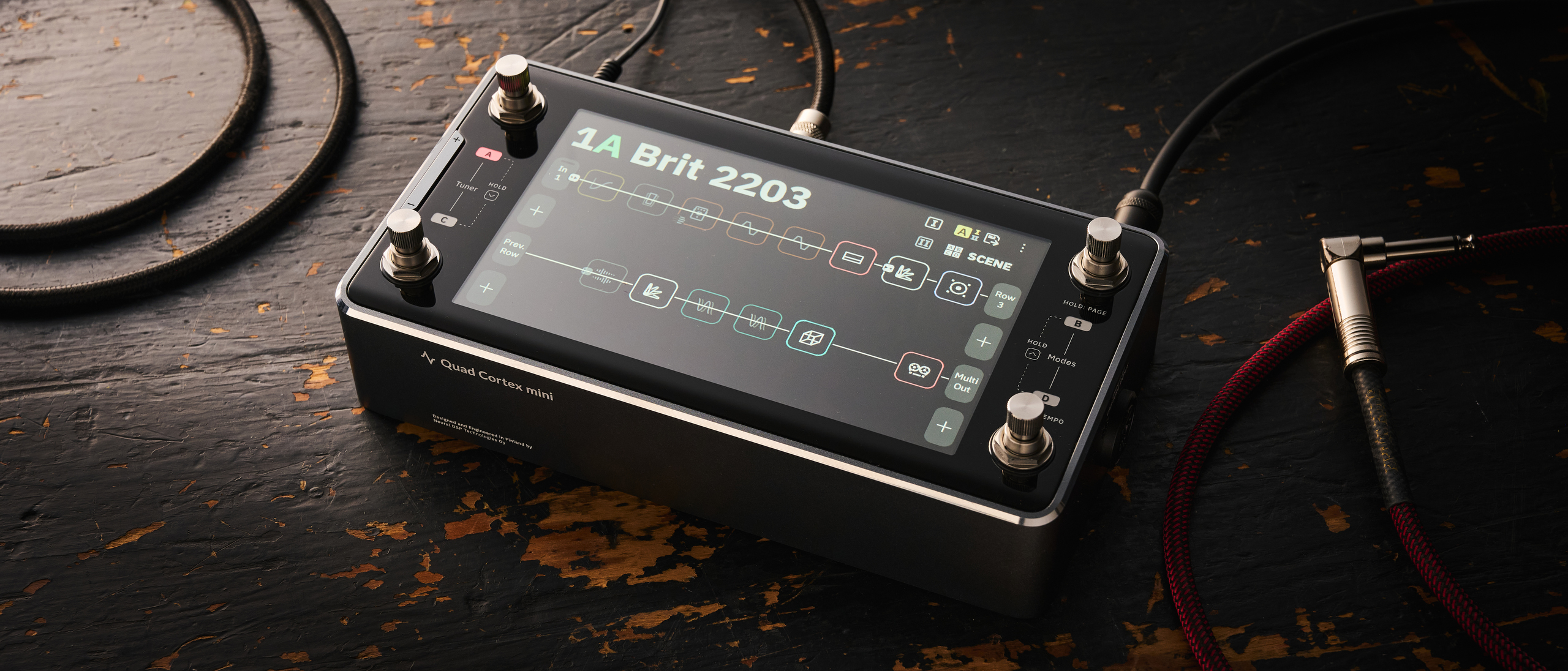“I just need one good sound and I’m set. A lot of players forget that”: Gus G’s tone and soloing philosophy is always evolving – and right now, it’s full of Floyd Rose divebombs
The Greek guitar phenom goes over the top on Firewind's new album, Stand Up, proving that all those hours locked away with Paul Gilbert instructional DVDs did not go to waste

All the latest guitar news, interviews, lessons, reviews, deals and more, direct to your inbox!
You are now subscribed
Your newsletter sign-up was successful
From becoming one of Greece’s biggest musical exports to joining Ozzy Osbourne’s band and releasing signature gear through Jackson, Blackstar and his own company Blackfire Pickups, Gus G is a man of many talents. Returning this year with his band Firewind’s 10th album Stand United, he’s still firing on all cylinders.
What tones are you dialling in these days?
“I’ve been really getting into Klon-type pedals! I love how they tighten and compress your tone but also sound super-clean. As well as custom shop versions of my pickups, I’m actually looking at doing pedals through Blackfire, starting with a Klon. My main sound right now is a Blackstar St James 6L6 with the J. Rockett Archer in front. It’s insane how good those two sound together – that’s the sweet spot for me.”
Is that what we’re hearing on the new Firewind album?
“It was a profile of my signature Blackstar head, mixed with STL and Soldano plug-ins. As well as my own Jackson guitars, I used a Randy Rhoads Concept Series model because it had a Floyd Rose. I hadn’t used one in so long, so why not have a bit of fun with big divebombs and harmonic screams?
“I just need one good sound and I’m set. A lot of players forget that. I remember watching an interview with Joe Bonamassa and him saying there are so many sounds you can get by changing your volume, tone and pickup controls. I’m all about working the volume knob!”
One of the new songs, Salvation Day, features one of your most dazzling solos, rapidly shifting through varying techniques while always sounding musical and fluid...
All the latest guitar news, interviews, lessons, reviews, deals and more, direct to your inbox!
“That’s probably most demanding bit on the record. We’ve only played it live once and I thought straight away, ‘Oh shit, I need to practise this way more!’ It requires attention because there’s a lot happening. I’ve always constructed my solos bar-by-bar.
“And while it’s easy to get lost in it all, you have to remember the goal, which is to serve the song. However fast you go, whatever techniques you use, there needs to be some kind of musical statement. That’s my philosophy. Some solos might be longer and self-indulgent, others might need something more simplistic…”
It’s the Paul Gilbert-rivalling alternate picking runs that often sound the scariest!
“I actually struggle way more with economy! I’ve really had to develop that. I’m still not where I’d like to be, but you know, that’s part of the fun of playing guitar; it’s a constant work in progress. We all have strengths and weaknesses. Even your strengths can be developed and improved. I was so caught up in alternate, I actually became scared of economy because I thought I’d forget what I’d learned!
“It doesn’t work like that, of course. More knowledge will only further your playing and self-expression. The main problem for alternate pickers is switching strings without losing speed. And, yeah, it was the Paul Gilbert videos that demystified those three note per-string runs. I had to lock myself away for long periods of time!”
- Stand United is out now via AFM.
Amit has been writing for titles like Total Guitar, MusicRadar and Guitar World for over a decade and counts Richie Kotzen, Guthrie Govan and Jeff Beck among his primary influences as a guitar player. He's worked for magazines like Kerrang!, Metal Hammer, Classic Rock, Prog, Record Collector, Planet Rock, Rhythm and Bass Player, as well as newspapers like Metro and The Independent, interviewing everyone from Ozzy Osbourne and Lemmy to Slash and Jimmy Page, and once even traded solos with a member of Slayer on a track released internationally. As a session guitarist, he's played alongside members of Judas Priest and Uriah Heep in London ensemble Metalworks, as well as handled lead guitars for legends like Glen Matlock (Sex Pistols, The Faces) and Stu Hamm (Steve Vai, Joe Satriani, G3).



